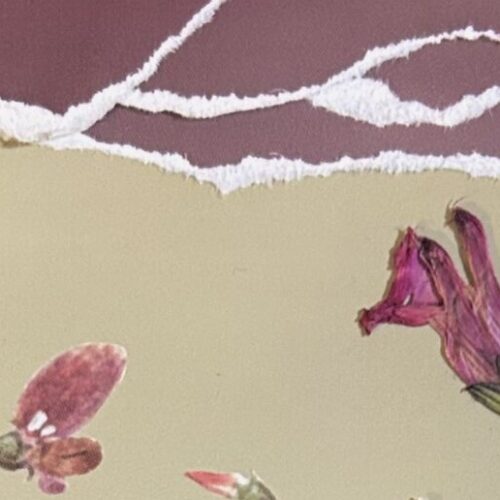And, like a neutral to his will and matter, / Did nothing. The
engine of your interval ranges blank across the hour. Blank along
an inkblack importuning. A blankness rising like a little light.
Blank blank my heart, blank my will and matter. These breathing
clouds. Brightback the bodies of birds black unbecome. Blankly a
ghostword moves among enemy sentences. Like a neutral. For
example, want. For example, augury and its defiance. For example,
any woman.
o
This nothing’s more than matter. A pattern of discrete absences or
a light snow. Vacancy of what cloudcovered hour. Slow lit these
crystalline grasses, this whitelined leaf pile. Attain to a hollowness.
Here coldly. Here, let me.
o
What ceremony else? Else this ache at the base of the skull, else
this eyestrain. Else a body other to itself, object before its own
mind, skull before its own eyes. Mind you this slow fog; mind you
its breaking. Elsewhere lichens break onto the old trees. White
casements. Chimney smoke. Elsewhere you occupy a season of
impenetrable particulars. Summon each sentence tenderness has
spoken to you. World-bereft, their little engines still run. Here the
ceremony of grammar makes nothing possible.
o
I think nothing, my lord. Still dark among the carsounds, you
empty the night’s ashes. Ophelia says the only words she can. Here
obedience. Here evasion. You build a small fire over the grate
while elsewhere the world takes up its forgotten body. O is a
picture, not a sound. O empty circle. O hollow hour. How all
occasions do inform your ghosted name, dropped into it, so many
little sticks.
o
As one incapable of her own distress. Experiment: what would a
woman look like emptied of everything, even her own distress?
Leaden clouds delimitate a cold pearlescence. Result: dumb echo.
Floral concentrate of sex and singing. The stove sounds its
invisible expansion behind the amplified nothing of the fire. The
wood you carried an hour ago resolves into a fine ash.
o
You are naught, you are naught: I’ll mark the play. Ophelia as
naught as knot as not.
o
No, no they do but jest, poison in jest. Witness to a performance of
madness, she contracts a real one. You rub the creosote from the
glass stove door to better watch the burning. This joke kills her.
Everything, even the light, fills with a low disgust. To be so readily
annihilated. Observed of all observers. Stay low, it whispers.
o
Your honesty should admit no discourse to your beauty. You think,
it snows, which might mean, the world snows itself, or perhaps the
weather is becoming snow, in any case it obscures the early light,
admitting discourse to the vulnerability of every kind of body. In
this scene, Ophelia’s lover suggests a banishment of the body’s
effects from the body’s interior life. Ophelia revisits this
instruction offstage. She, too, is haunted. The specter of her
dismemberment settles whitely over everything.
o
but to persever / In obstinate condolement Obstinate, my father’s
body held its living days or hours past the point of seizure.
Outside, still back, still black, still black. Seizure as in a laying
hold by invisible hands. Consider writing as temporal measure
whose unit is a letter. O hands, you make a pile of time. O time.
What nothing seizes me? What obstinance? Now a dull light shows
the shapes of all the objects that withstood the dark hours.
Notwithstanding nothing. O little pile, o occupant. O o o. Who’s
there?
o
And nothing is at a like goodness still This darkness which is not
absence but a low hovering concentrate, thick with dark, thick as
any January tenor, doubled down in its own too much.
o
all those his lands/Which he stood seized of All those the little
snowfall now everywhere unbecomes. All those which may be
seized, are seized, are the seizure of the body of the land. In the
middle of the sentence, the lichens break into the dawnlight, the
body breaks into its beauty. How you may forfeit your own mind,
may stand seized of it, by poison or by illness or by any man, by
words. Obstinately the little snow.

Kristen Case
Kristen Case is a Professor of English at the University of Maine Farmington. Her first poetry collection, Little Arias, was published by New Issues in 2015. Her second collection, Principles of Economics, published by Switchback Books, won the 2018 Gatewood Prize. She received the Maine Literary Award in Poetry for both collections. Case is also author of the bookAmerican Poetry and Poetic Practice: Crosscurrents from Emerson to Susan Howe (Camden House, 2011) and co-editor of the volumes Thoreau at 200: Essays and Reassessments (Cambridge UP, 2016) and 21|19: Contemporary Poets in the 19th Century Archive (Milkweed Editions, 2019). She is the recipient of a MacDowell Fellowship and the Trustee Professorship at the University of Maine Farmington.



